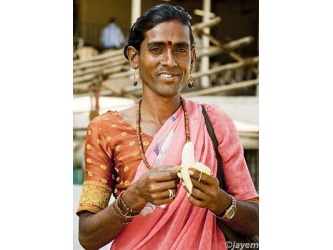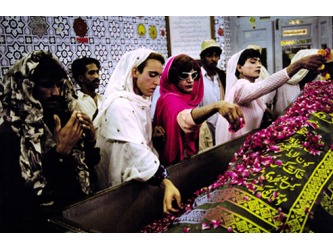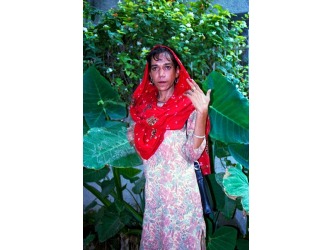Hijra
“We are neither man nor woman; we are Hijra"
(Nanda 382)
Physiology plays a large role in differentiating between Hijra and the men and women in India. A small fraction of them are biologically intersexed. The rest are castrated menor barren women (Nanda 380-1). When asked about their gender identity, Hijras say “we are neither man nor woman; we are Hijra ( Nanda 382).”Like the Two-Spirits, the Hijra perform religious rituals. Hijra go to the home of a newborn boy and perform a ritualistic act. The majority of the performance is meant for entertainment. They sing and dance in a comical exaggeration of stereotypical female behavior. During the festivities a Hijra determines whether or not the child is intersexed. If he is, the Hijra raise him as one of their own. If he is not, they pray that he will grow up to be strong and fertile. The parents of the children pay the Hijra in gifts of sugar, cloth, wheat and money. If they do not, the Hijra would curse the family and baby. The Hijra are respected for their religious importance, but they are also feared and ridiculed.
Nanda, Serena. Neither a Man nor a Woman. Wadsworth Publishing 1998



